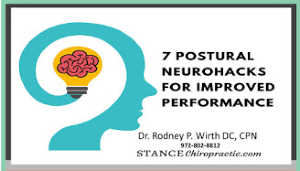Uncovering Sleep Secrets – Part 2
Learn secrets about ways to enjoy true rest and relaxation and embrace five additional practical sleep tips to improve this vital part of your health journey.
The Spiritual Component of Sleep
Our society is a experiencing an epidemic of poor sleep.
Sleep is for rest and that has a spiritual component.
Turn off your mind instead of:
- Striving
- Managing
- Planning
- Creating
- Fixing
- CONTROLLING
Resting comes as a result of hope – confident expectation of a good outcome no matter what you are going through right now.
Three important factors that inspire true rest
- God is good.
- God is faithful.
- God deserves my utmost confidence.
When you lie down, you will not be afraid; Yes, you will lie down and your sleep will be sweet. Do not be afraid of sudden terror, Nor of trouble from the wicked when it comes; for the Lord will be your confidence.
Proverbs 3:24-26
Enter into God’s rest
There is a place of rest where you can find abundance and security.
God has promised to supply all your needs and even your wants.
Pour out all your worries and stress upon him and leave them there, for he always tenderly cares for you.
I Peter 5:6-7 TPT
This portion of the podcast was inspired by the book by Robert Morris, Take the Day Off.
Sleep Secrets – Part 2
Sleep Tip #6: Limit blue light after sunset.
Technical Side:
Bright light (especially blue) stimulates your brain and tells you it is time to get going for the day. It stops (or delays) melatonin production that regulates your circadian rhythm.
Practical Side:
Discipline yourself to turn off your computer and devices three hours before bedtime. If that is too hard, then purchase blue-blocking glasses or install apps on your electronics.
Sleep Tip #7: Establish pre-sleep relaxing rituals.
Technical Side:
Dr. Epstein, co-author of The Harvard Medical School Guide to a Good Night’s Sleep talks about the need to separate daytime activities from what you do when preparing for bed. “Our body craves routine and likes to know what’s coming,” says Dr. Epstein. By creating a pre-sleep ritual, you’re establishing a clear association between certain activities and sleep.
Practical Side:
One of the best relaxing ‘regulars’ is to read a spiritual or uplifting book. *Be sure to avoid e-Books at this stage of the day.* A warm bath, calming music, stretching routine or relaxation exercises should be done one hour to 30 minutes before bedtime.
Sleep Tip #8: Regular exercise improves the quality of your sleep.
Technical Side:
The National Sleep Foundation reports that a new study, published in the journal of Mental Health and Physical Activity lends more evidence to mounting research showing the importance of exercise to improve the quality of sleep. The changes are not immediate so keep that movement going to improve your sleep.
Practical Side:
The important factor as far as your sleep is concerned is to exercise consistently for a least 30 minutes every day. However, avoid timing it just before bedtime as it may keep you awake. The best time to exercise is in the morning.
Sleep Tip #9: Do controlled breathing exercises.
Technical Side:
Slow, deep breathing actually helps the body override the sympathetic system, which controls our fight-or-flight response, and lets the parasympathetic system ¬— which controls our ability to relax — take the wheel instead. When you practice deep breathing while in bed, you’re giving the body permission to quit being on high alert and, instead, to relax.
Practical Side:
Focus on your breathing and release the anxious thoughts swarming around in your mind. Keep a notebook by the bed to write down the anxious thoughts and then, simply relax. The result of controlled deep breathing is a slower heart rate and a greater sense of calm.
Sleep Tip #10: Monitor your response to chemical sleep disruptors.
Technical Side:
Researchers at Michigan’s Henry Ford Hospital’s Sleep Disorders & Research Center and Wayne State College of Medicine analyzed the sleep-disruptive effects of caffeine consumption at different lengths of time before bedtime. They found that caffeine consumed even 6 hours before bedtime resulted in significantly diminished sleep quality and sleep quantity.
Practical Side:
Go ahead and enjoy your cup of coffee each morning. Find out what works best for you especially regarding the time when you need to stop consuming caffeine. Also, keep in mind that chemical sleep disruptors come in many forms besides coffee such as tea, chocolate, alcohol and pain medicine.








